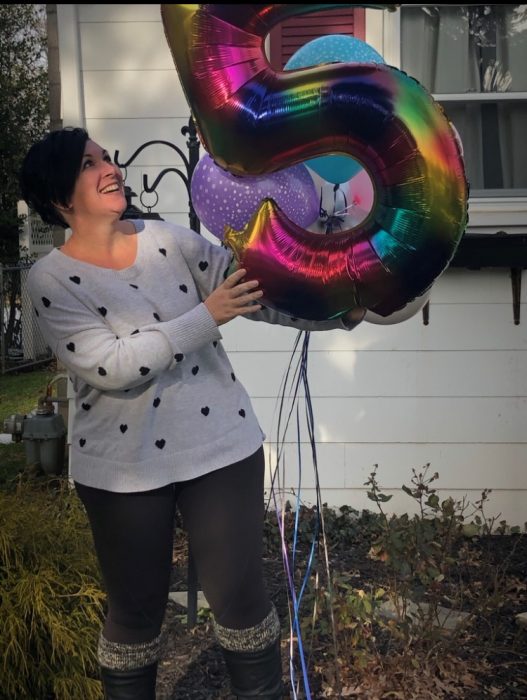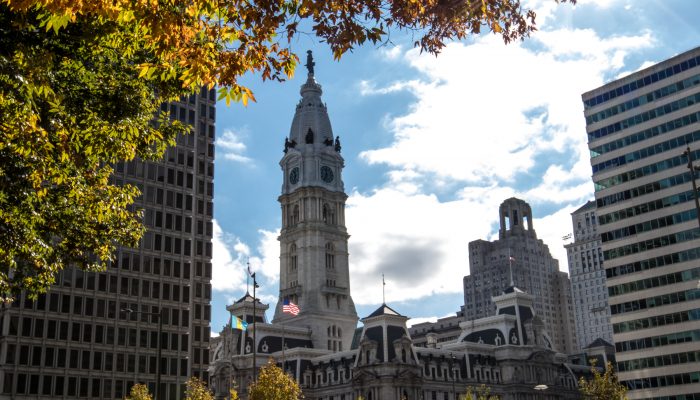As the City’s Office of Diversity, Equity, and Inclusion (DEI) continues to dismantle institutional and structural barriers that have held back many Philadelphia residents for too long, it is also working toward transparency, visibility, and accountability. September is National Recovery Month, and our Executive Director, Amy Millar (she/her) is highlighting her experience in recovery and leading efforts towards visibility and change. We are humbled to share her experience.
Additionally, our partner, the Department of Behavioral Health and Intellectual Disability Services (DBHIDS) offers many services for recovery, as well as mental health resources. Visit their Healthy Minds Philly website if you or someone you know may be in need of support.

Q. September is National Recovery Month. What does recovery mean for you and what helps you navigate the day-to-day in recovery?
Recovery demands the same cost as addiction, your entire life. The only difference is that in recovery you get to build the life meant for you. I embrace the idea that every day is a day I have never seen before and I set my intentions that I will choose sobriety over and over again one moment at time. I know what it looks like to give up, to lose it all, I want to see what it looks like to keep going.
Q. As the Executive Director of the Office of People with Disabilities, we recognize visibility is important. Can you speak more to your hopes for affirming support for people in recovery working in leadership positions?
The way to address addiction stigma is one recovery story at a time. When I went into treatment it was essentially the death of the life I had held at the time. After I got sober and sought help, I was broken, raw, scared and lost, thinking“What do I do now?” I truly didn’t believe I would ever find my way or be successful in my career again, as though there was this giant flashing sign above my head, “She’s a recovering addict, don’t hire her.” I had to start over and that was terrifying at the time. When I think back to my early sobriety days, the life I have today I could never have imagined or seen. Yet it was built one moment at time. I have worked on my recovery daily which has allowed me to create a pathway in my career, to go back to school, be the partner and mother my family needs and deserves. My hope is that my presence in this role propels change for our city so that those struggling can see that a life in recovery is obtainable and the life they never could have imagined is waiting for them on the other side.
Q. Recovery isn’t a concept; it is real people, living an experience. What have you learned in your role here at the City that would encourage hope in others to find support and build towards realizing their goals and dreams?
The biggest take away for me, is that we must stop limiting ourselves for those are the only real limits to our potential. My worth didn’t end because I was an addict and my hope is that by living my life in recovery out loud it will transform the way we look at addiction and recovery. Addiction can impact anyone of us at any time in our lives. Yet, if there is breath in our lungs, we still have the capacity to change our trajectory so I want people to know they are worthy of the life meant for them. What I have learned in my role, is there is a place for everyone in this city and together we can create a city built on inclusion. There is a song by Michael Franti and the lyrics say, “Just work hard and be nice to people.” That is at the core of my intentions for my position and work at the city; to work hard and meet the human needs of our city.
Q. What was the moment like to be able to own your lived experience openly like for you?
It was liberating, but it took time to get to that place. In early recovery the biggest fear was that it would get out, which is the best way to further stigma. When I told a former supervisor for the first time, I was terrified. I let it all out like a balloon untied, she blinked and said ok and then she just hugged me. She thanked me for telling her and she said, “I’m proud of you, you’re going to do good things.” And my heart started beating again, the world didn’t end after all. It was from that moment I was no longer afraid to let the world know my truth. It’s not always an easy thing to do. It’s not that I think there is no risk or cost to being this open about my story. It’s that I no longer allow the cost to be prohibitable for me. It’s a cost I am fully aware of and willing to pay if it means we can shift the conversation and provide hope to those struggling. It takes the right people to hear you and timing matters but everyone needs to know that life in recovery is more than possible, it’s necessary. We have the power to end stigma and shame around addiction and recovery, one story at a time. I know I’ll keep sharing mine while holding on to my recovery, hope and always remembering that anyone that doesn’t accept me because of my recovery: they aren’t my people and I’ll be ok.
Prior to joining the City of Philadelphia as the Executive Director for the Mayor’s Office for People with Disabilities, Amy Mathewson Millar (she/her) has dedicated her career, rooted in Pennsylvania, to disability advocacy.



